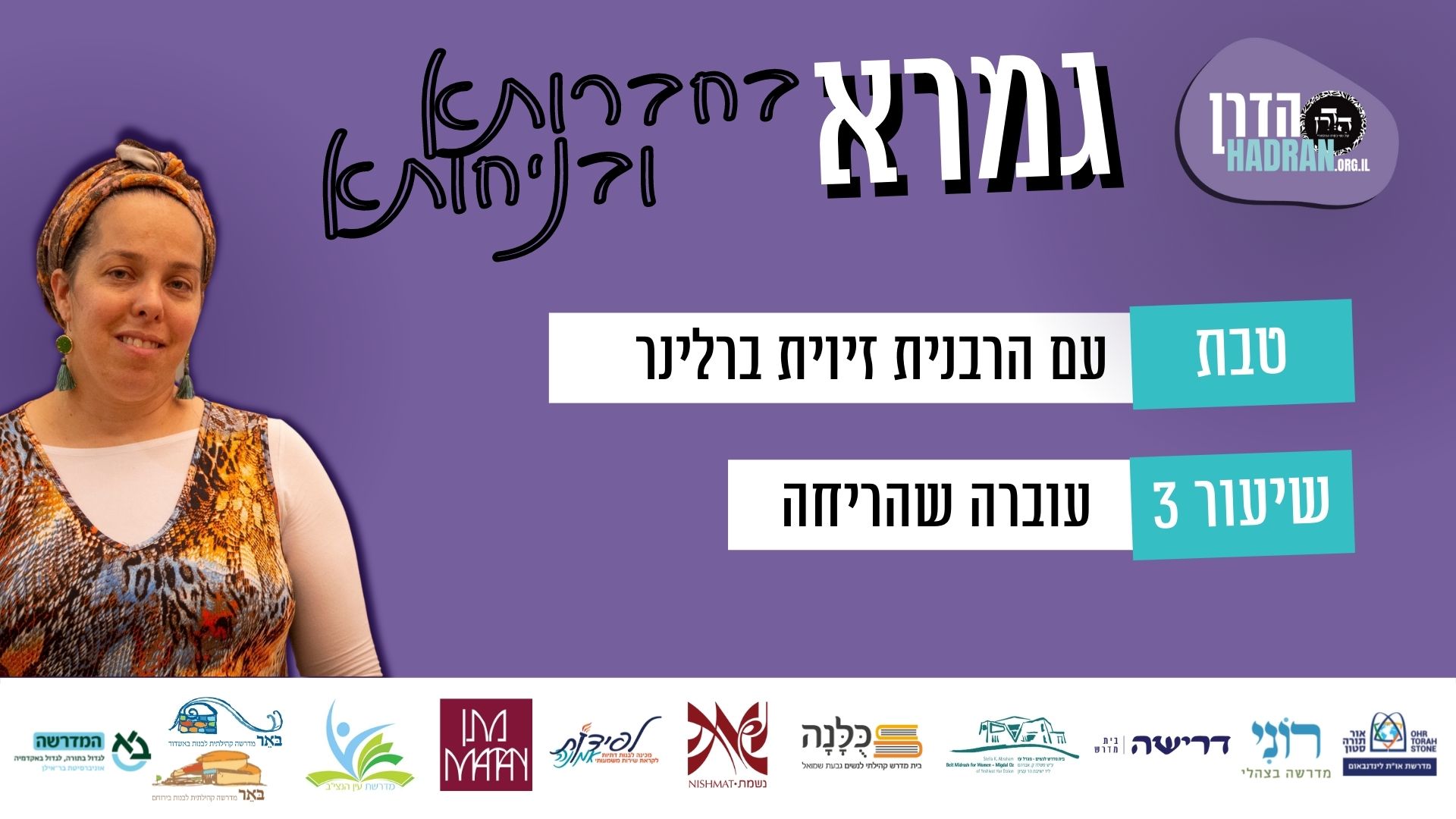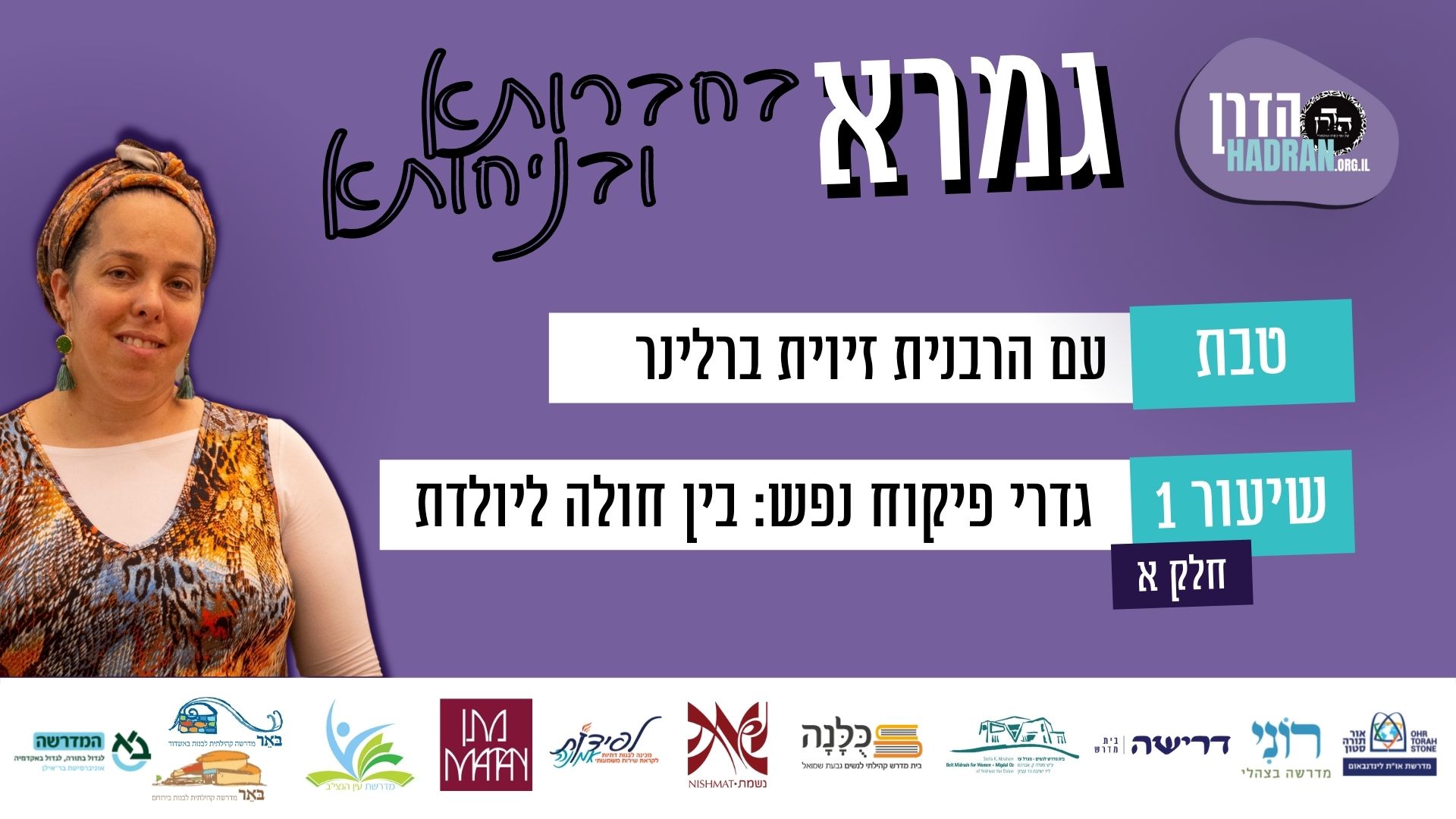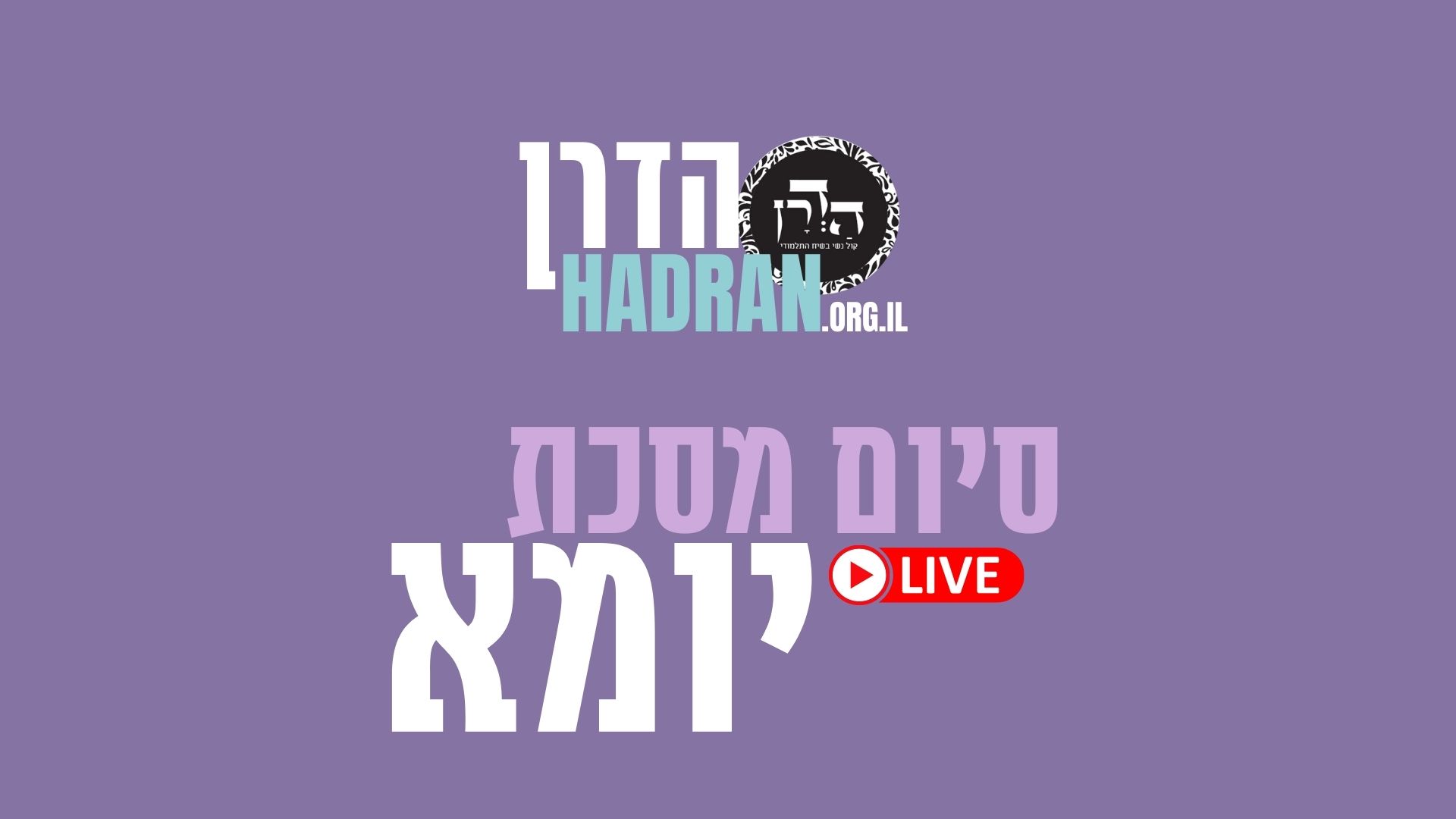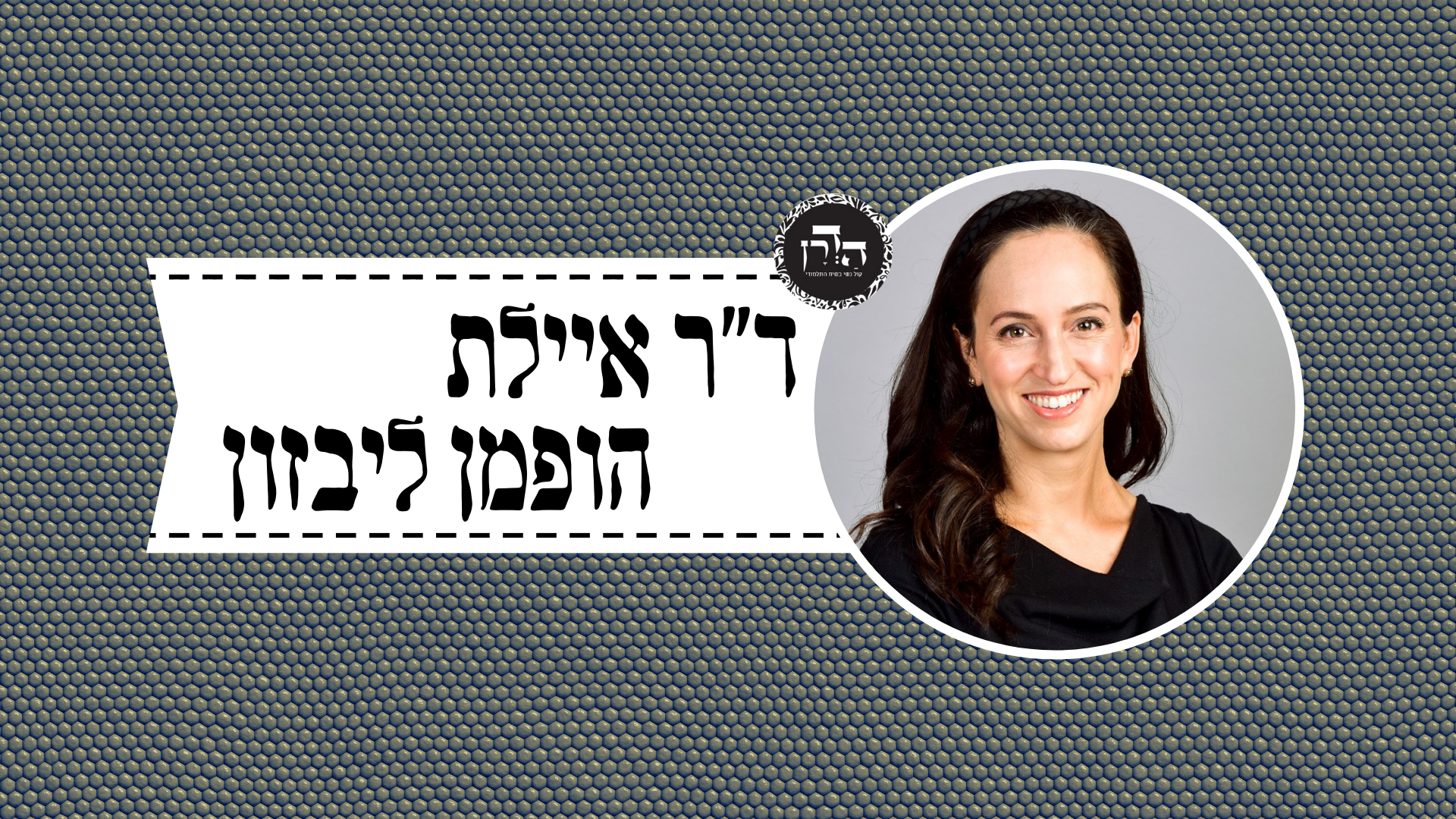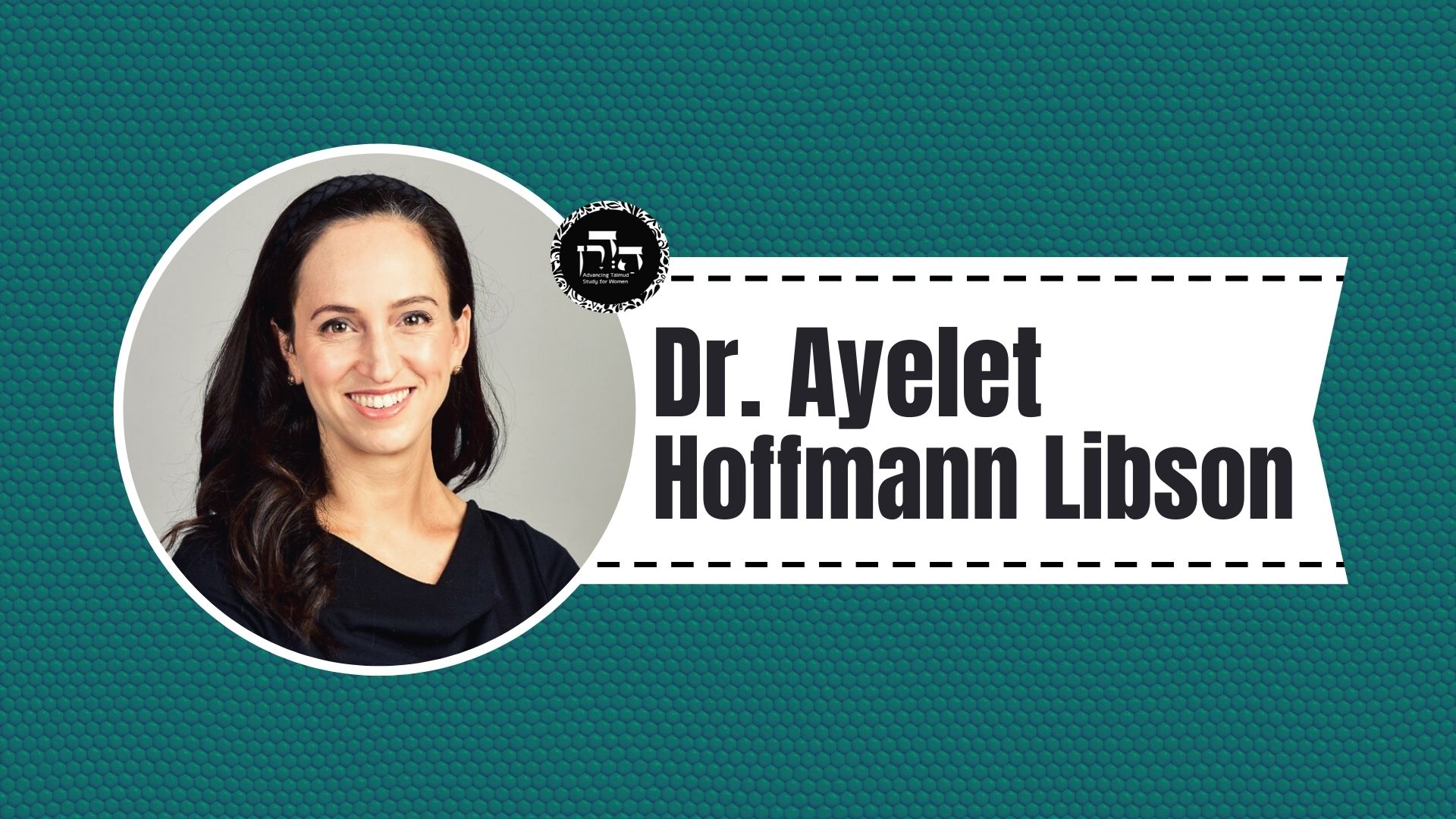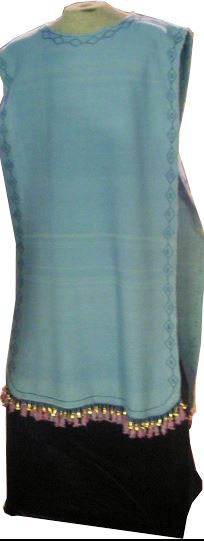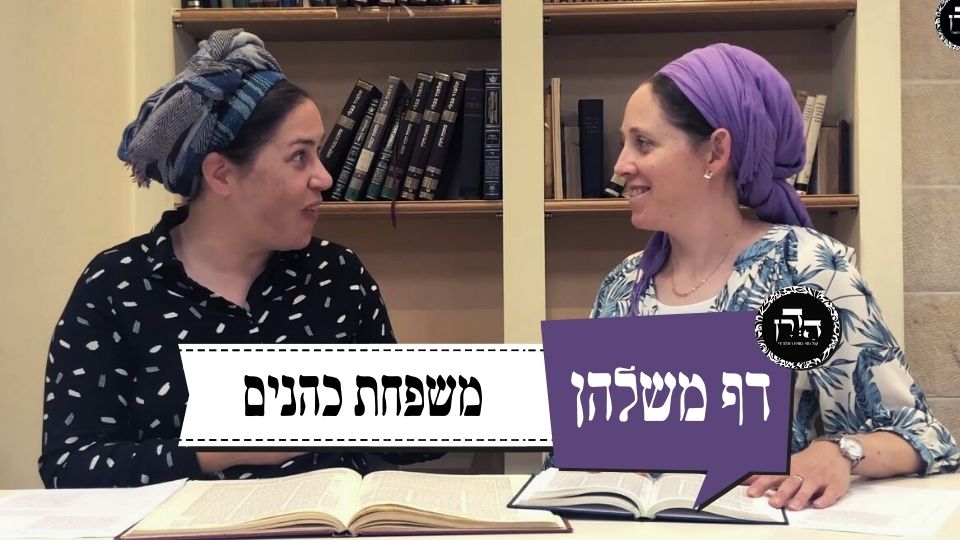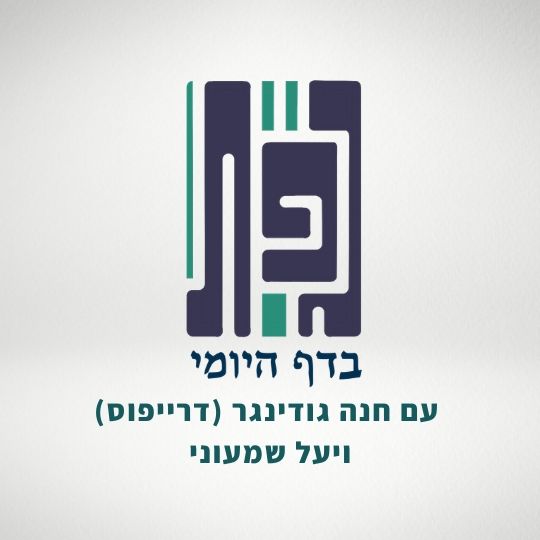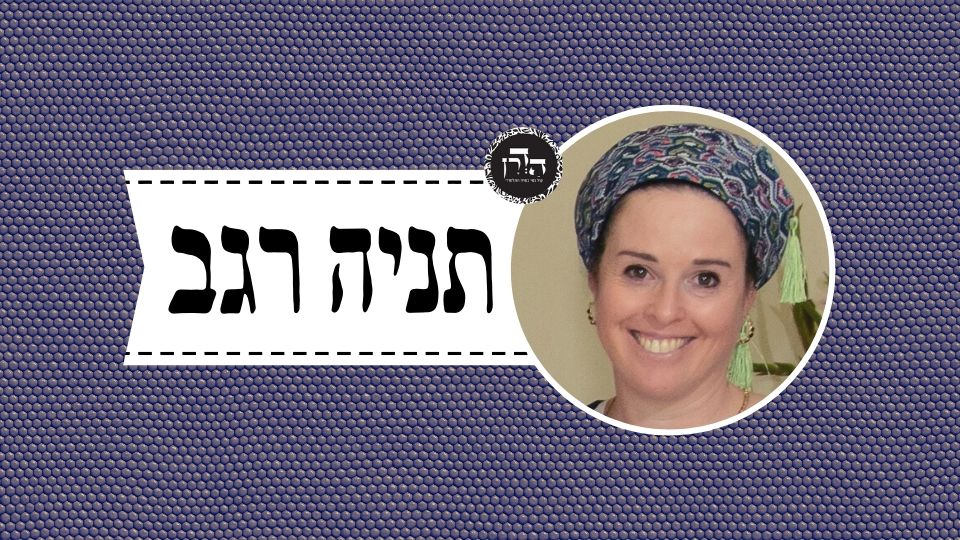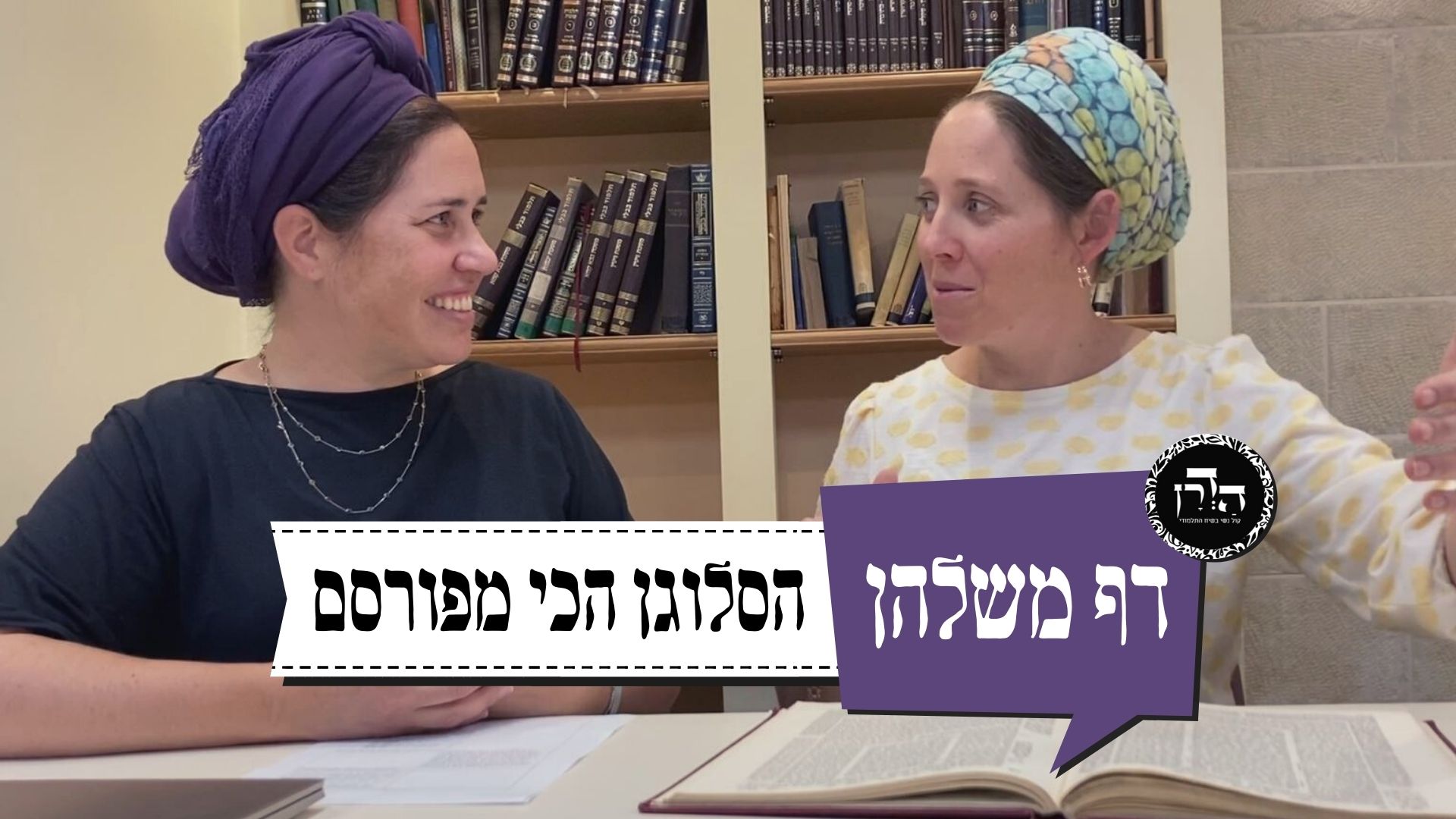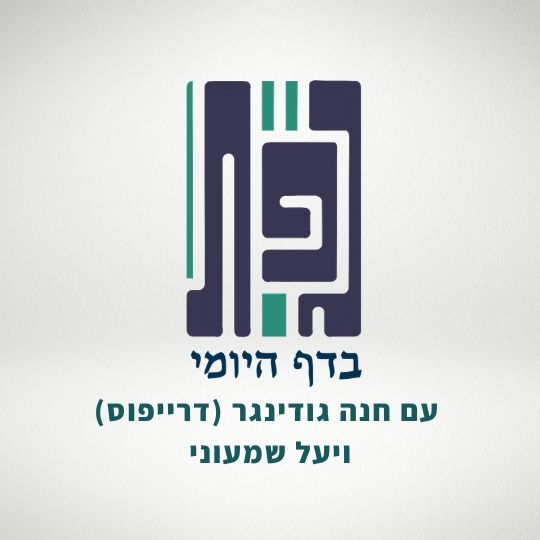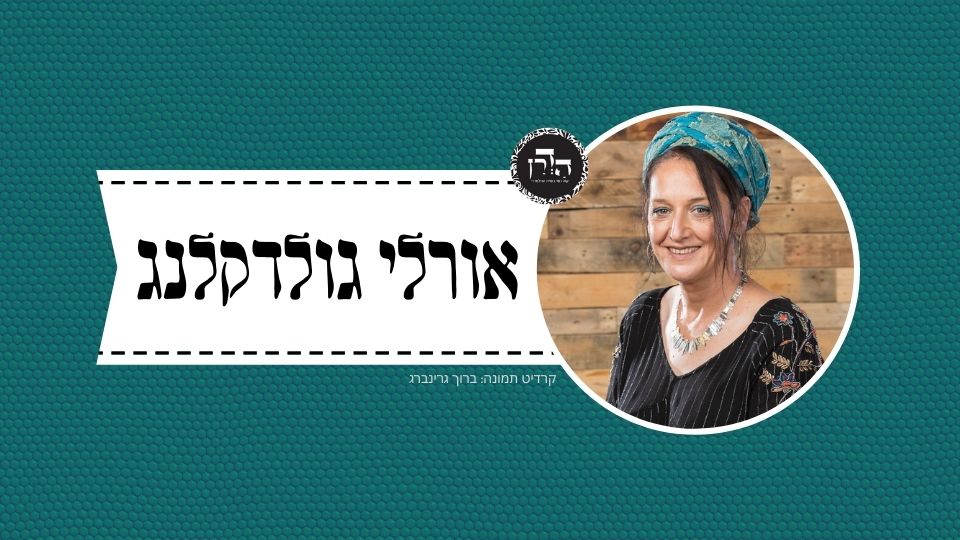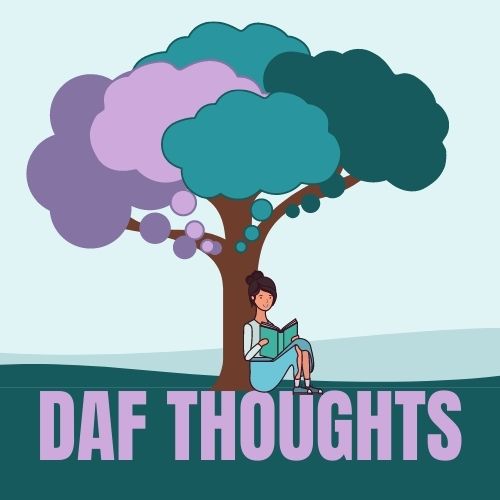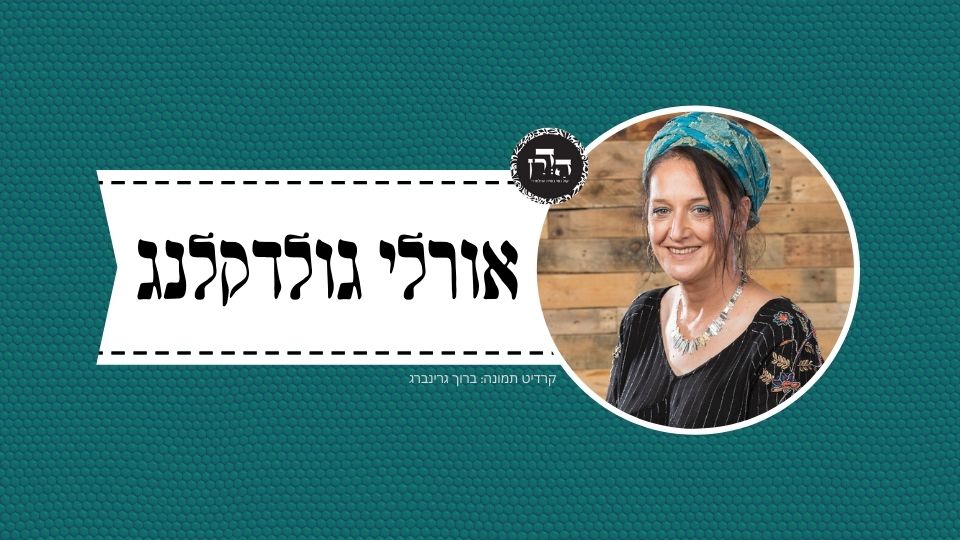יומא פד
לְמִקְטְלֵיהּ בְּדָבָר הַנִּזְרָק.
killing it with an object that is thrown from a distance like an arrow rather than with one’s hands. If the dog is possessed by an evil spirit, one should avoid direct contact with it.
תַּנְיָא כְּווֹתֵיהּ דִּשְׁמוּאֵל. כְּשֶׁהוֹרְגִין אוֹתוֹ — אֵין הוֹרְגִין אוֹתוֹ אֶלָּא בְּדָבָר הַנִּזְרָק. דְּחָיֵיף בֵּיהּ — מִסְתַּכַּן, דְּנָכֵית לֵיהּ — מָיֵית. דְּחָיֵיף בֵּיהּ — מִסְתַּכַּן: מַאי תַּקַּנְתֵּיהּ? נִישַׁלַּח מָאנֵיהּ וְנִירְהַיט. רַב הוּנָא בְּרֵיהּ דְּרַב יְהוֹשֻׁעַ חַף בֵּיהּ חַד מִינַּיְיהוּ בְּשׁוּקָא, שַׁלְּחִינְהוּ לְמָאנֵיהּ וְרָהֵיט. אֲמַר: קִיַּימְתִּי בְּעַצְמִי ״הַחׇכְמָה תְּחַיֶּה בְעָלֶיהָ״.
The Gemara comments: This was taught in a baraita in accordance with the opinion of Shmuel: When one kills a mad dog, he should kill it only with a thrown object. Furthermore, one who is rubbed by a mad dog will become dangerously ill, while one bitten by the dog will die. The Gemara asks: What is the remedy for one who is rubbed by mad dog and becomes dangerously ill? The Gemara answers: Let him take off his clothing and run. The Gemara relates: Rav Huna, son of Rav Yehoshua, was rubbed by one of these mad dogs in the market, whereupon he took off his clothing and ran. He said: I have fulfilled the verse: “Wisdom preserves the lives of those who have it” (Ecclesiastes 7:12).
דְּנָכֵית לֵיהּ מָיֵית: מַאי תַּקַּנְתֵּיהּ? אָמַר אַבָּיֵי: נֵיתֵי מַשְׁכָּא דְּאַפָּא דִּיכְרָא וְנִיכְתּוֹב עֲלֵיהּ: אֲנָא פְּלָנְיָא בַּר פְּלָנִיתָא אַמַּשְׁכָּא דְּאַפָּא דִּיכְרָא כָּתֵיבְנָא עֲלָךְ: ״כַּנְתִּי כַּנְתִּי קְלֵירוֹס״. וְאָמְרִי לַהּ: ״קַנְדִּי קַנְדִּי קְלוֹרוֹס, יָהּ יָהּ ה׳ צְבָאוֹת אָמֵן אָמֵן סֶלָה״. וְנִשְׁלְחִינְהוּ לְמָאנֵיהּ וְלִקְבְּרִינְהוּ בֵּי קִבְרֵי עַד תְּרֵיסַר יַרְחֵי שַׁתָּא, וְנַפְּקִינְהוּ וְנִקְלִינְהוּ בְּתַנּוּרָא וּנְבַדְּרִינְהוּ לְקִטְמֵיהּ אַפָּרָשַׁת דְּרָכִים. וְהָנָךְ תְּרֵיסַר יַרְחֵי שַׁתָּא, כִּי שָׁתֵי מַיָּא — לָא לִישְׁתֵּי אֶלָּא בְּגוּבְתָּא דִנְחָשָׁא, דִּילְמָא חָזֵי בָּבוּאָה דְּשֵׁידָא וְלִיסְתַּכַּן. כִּי הָא דְּאַבָּא בַּר מָרְתָא הוּא אַבָּא בַּר מִנְיוֹמֵי, עֲבַדָא לֵיהּ אִימֵּיהּ גּוּבְתָּא דְּדַהֲבָא.
The Gemara continues to discuss the baraita: One bitten by a mad dog will die. The Gemara asks: What is the remedy? Abaye said: Let him bring the skin of a male hyena and write on it: I, so-and-so, son of so-and-so, am writing this spell about you upon the skin of a male hyena: Kanti kanti kelirus. And some say he should write: Kandi kandi keloros. He then writes names of God, Yah, Yah, Lord of Hosts, amen amen Selah. And let him take off his clothes and bury them in a cemetery for twelve months of the year, after which he should take them out, and burn them in an oven, and scatter the ashes at a crossroads. And during those twelve months of the year, when his clothes are buried, when he drinks water, let him drink only from a copper tube and not from a spring, lest he see the image of the demon in the water and be endangered, like the case of Abba bar Marta, who is also called Abba bar Manyumi, whose mother made him a gold tube for this purpose.
וְעוֹד אָמַר רַבִּי מַתְיָא: רַבִּי יוֹחָנָן חָשׁ בְּצַפְדִּינָא. אֲזַל גַּבַּהּ דְּהַהִיא מַטְרוֹנִיתָא, עֲבַדָא לֵיהּ מִלְּתָא חַמְשָׁא וּמַעֲלֵי שַׁבְּתָא. אֲמַר לַהּ: בְּשַׁבָּת מַאי? אֲמַרָה לֵיהּ: לָא צְרִיכַתְּ. אִי מִצְטְרִיכְנָא מַאי? אֲמַרָה לֵיהּ: אִישְׁתְּבַע לִי דְּלָא מְגַלֵּית, אִישְׁתְּבַע: לֵאלָהָא דְיִשְׂרָאֵל לָא מְגַלֵּינָא. נְפַק דַּרְשַׁהּ בְּפִירְקָא.
§ The mishna said: And furthermore, Rabbi Matya ben Ḥarash said: With regard to one who suffers pain in his throat, one may place medicine inside his mouth on Shabbat, although administering a remedy is prohibited on Shabbat. The Gemara discusses a related incident: Rabbi Yoḥanan suffered from the illness tzefidna, which first affects the teeth and gums and then the intestines. He went to a certain gentile matron [matronita] who was a well-known healer. She prepared a medicine for him on Thursday and Friday. He said to her: What shall I do on Shabbat, when I cannot come to collect the medicine from you? She said to him: You will not need it. He asked her: If I do need it, what shall I do? She said to him: Swear to me that you will not reveal the remedy; then I will tell you, and you can prepare it yourself should you need it. He swore: To the God of the Jews, I will not reveal it. She told him the remedy. Rabbi Yoḥanan then went out and taught it publicly, revealing the secret of the remedy.
וְהָא אִישְׁתְּבַע לַהּ! לֵאלָהָא דְיִשְׂרָאֵל לָא מְגַלֵּינָא. הָא לְעַמּוֹ יִשְׂרָאֵל — מְגַלֵּינָא. וְהָא אִיכָּא חִלּוּל הַשֵּׁם! דִּמְגַלֵּי לַהּ מֵעִיקָּרָא.
The Gemara is surprised at this: But he swore to her that he would not reveal it. The Gemara answers that in his vow he declared: I will not reveal it to the God of the Jews. However, his words imply: I will reveal it to His people, the Jews. The Gemara asks: Still, there is a desecration of God’s name, as the matron now thinks that a great man of Rabbi Yoḥanan’s stature broke his vow. The Gemara answers: He revealed it to her at the outset. As soon as she revealed the remedy to him, he told her that his vow would not prevent him from publicizing the remedy.
מַאי עֲבַדָא לֵיהּ? אָמַר רַב אַחָא בְּרֵיהּ דְּרַב אַמֵּי: מֵי שְׂאוֹר, שֶׁמֶן זַיִת, וָמֶלַח. רַב יֵימַר אֲמַר: שְׂאוֹר גּוּפֵיהּ, שֶׁמֶן זַיִת, וָמֶלַח. רַב אָשֵׁי אָמַר: מִשְׁחָא דְּגַדְפָּא דַאֲווֹזָא. אָמַר אַבָּיֵי: אֲנָא עֲבַדִי לְכוּלְּהוּ וְלָא אִיתַּסַּאי, עַד דַּאֲמַר לִי הַהוּא טַיָּיעָא: אַיְיתִי קַשְׁיָיתָא דְזֵיתָא דְּלָא מְלוֹ תִּילְתָּא, וּקְלִינְהוּ בְּנוּרָא אַמָּרָא חַדְתָּא, וְאַדְבֵּיק בְּכַכֵּי דָרֵיה. עֲבַדִי הָכִי וְאִיתַּסַּאי.
The Gemara asks: What was the medicine that she prepared for him? Rav Aḥa, son of Rav Ami, said: It was water in which leaven was steeped, olive oil, and salt. Rav Yeimar said: It was leaven itself, olive oil, and salt. Rav Ashi said: The remedy was fat from the bone marrow of a goose’s wing. Abaye said: I made all of these medicines and was not cured from this ailment, until a certain Arab told me the remedy for it: Take olive seeds that are less than one-third ripe, and burn them in a fire on top of a new hoe, and stick them along the row of gums. I did this and was cured.
מִמַּאי הֲוָה? מֵחַמִּימֵי חַמִּימֵי דְּחִיטֵּי, וּמִשִּׁיּוּרֵי כָּסָא דְהַרְסָנָא. וּמַאי סִימָנֵיהּ — כַּד רָמֵי מִידֵּי בְּכַכֵּיהּ וְאָתֵא דְּמָא מִבֵּי דָרֵי. רַבִּי יוֹחָנָן כִּי חָשׁ בְּצַפְדִּינָא, עֲבַד הָכִי בְּשַׁבְּתָא וְאִיתַּסִּי. וְרַבִּי יוֹחָנָן הֵיכִי עָבֵיד הָכִי? אֲמַר רַב נַחְמָן בַּר יִצְחָק: שָׁאנֵי צַפְדִּינָא הוֹאִיל וּמַתְחִיל בַּפֶּה, וְגוֹמֵר בִּבְנֵי מֵעַיִים.
§ The Gemara asks: From where does this disease tzefidna come? It is from eating wheat bread that is too hot and fish remains fried in oil. What is the sign of this sickness? When one puts something between his teeth, blood comes out from his gums. When Rabbi Yoḥanan suffered from tzefidna, he prepared this medicine described above on Shabbat and was cured. The Gemara asks: And how did Rabbi Yoḥanan prepare this medicine on Shabbat for an ailment which affects only the gums but is not life-threatening? Rav Naḥman bar Yitzḥak said: Tzefidna is different, since it does indeed begin in the mouth and appears to be an illness of the teeth, but it ends up in the intestines and is dangerous.
אֲמַר לֵיהּ רַב חִיָּיא בַּר אַבָּא לְרַבִּי יוֹחָנָן: כְּמַאן — כְּרַבִּי מַתְיָא בֶּן חָרָשׁ, דְּאָמַר: הַחוֹשֵׁשׁ בְּפִיו מְטִילִין לוֹ סַם בְּשַׁבָּת. אֲמַר לֵיהּ: שֶׁאֲנִי אוֹמֵר בְּזוֹ, וְלֹא בְּאַחֶרֶת.
Rav Ḥiyya bar Abba said to Rabbi Yoḥanan: In accordance with whose opinion did you do this? Was it not in accordance with the opinion of Rabbi Matya ben Ḥarash, who said: In the case of one who suffers pain in his mouth, one puts medicine in his mouth on Shabbat, which is a minority opinion? Rabbi Yoḥanan said to him: It is so, but I say the Sages agreed with him about taking medicine in this case alone, but no other. If so, with regard to medicine on Shabbat, the view of Rabbi Matya ben Ḥarash is not a minority opinion.
לֵימָא מְסַיַּיע לֵיהּ: מִי שֶׁאֲחָזוֹ יֵרָקוֹן — מַאֲכִילִין אוֹתוֹ בְּשַׂר חֲמוֹר, מִי שֶׁנְּשָׁכוֹ כֶּלֶב שׁוֹטֶה — מַאֲכִילִין אוֹתוֹ מֵחֲצַר כָּבֵד שֶׁלּוֹ, וְהַחוֹשֵׁשׁ בְּפִיו — מְטִילִין לוֹ סַם בְּשַׁבָּת, דִּבְרֵי רַבִּי מַתְיָא בֶּן חָרָשׁ. וַחֲכָמִים אוֹמְרִים: בְּאֵילּוּ אֵין בָּהֶם מִשּׁוּם רְפוּאָה. ״בְּאֵלּוּ״ לְמַעוֹטֵי מַאי? מַאי לָאו, לְמַעוֹטֵי סַם?
Let us say that this baraita supports him: With regard to one who is seized with yerakon, one feeds him donkey meat as medicine; with regard to one whom a mad dog bit, one feeds him the lobe of its liver; in the case of one who has pain in his mouth, one puts medicine in his mouth on Shabbat; this is the statement of Rabbi Matya ben Ḥarash. And the Rabbis say: These have no value as a remedy. The Rabbis used the term these, to exclude what? What, is it not to exclude this medicine for tzefidna, which the Rabbis agree is permitted on Shabbat?
לָא, לְמַעוֹטֵי: מַקִּיזִין דָּם לִסְרוֹנְכֵי. הָכִי נָמֵי מִסְתַּבְּרָא. דְּתַנְיָא: שְׁלֹשָׁה דְּבָרִים אָמַר רַבִּי יִשְׁמָעֵאל בְּרַבִּי יוֹסֵי שֶׁשָּׁמַע מִשּׁוּם רַבִּי מַתְיָא בֶּן חָרָשׁ: מַקִּיזִין דָּם לִסְרוֹנְכֵי בְּשַׁבָּת, וּמִי שֶׁנְּשָׁכוֹ כֶּלֶב שׁוֹטֶה — מַאֲכִילִין אוֹתוֹ מֵחֲצַר כָּבֵד שֶׁלּוֹ, וְהַחוֹשֵׁשׁ בְּפִיו מְטִילִין לוֹ סַם בְּשַׁבָּת.
The Gemara rejects this: No, it excludes a different remedy, which Rabbi Matya suggests: Bloodletting to heal the ailment serunkhi is permitted on Shabbat. The Gemara comments: So too, this is reasonable to say, as it was taught in a baraita: Rabbi Yishmael, son of Rabbi Yosei, said three things that he heard in the name of Rabbi Matya ben Ḥarash: One may let blood for serunkhi on Shabbat; and in the case of one whom a mad dog bit, one feeds him the lobe of its liver; and in the case of one who has pain in his mouth, one puts medicine in his mouth on Shabbat.
וַחֲכָמִים אוֹמְרִים: בְּאֵילּוּ אֵין בָּהֶן מִשּׁוּם רְפוּאָה. ״בְּאֵילּוּ״ לְמַעוֹטֵי מַאי? מַאי לָאו, אַתַּרְתֵּי בָּתְרָיָיתָא וּלְמַעוֹטֵי דְּרֵישָׁא! לָא: אַתַּרְתֵּי דְּרֵישָׁא קַמָּיָיתָא, וּלְמַעוֹטֵי דְּסֵיפָא.
And the Rabbis say: These have no value as a remedy. The Rabbis used the term these to exclude what? What, is it not to limit their argument only to the latter two items, which do not cure anything, and to exclude the first item, bloodletting for serunkhi, which everyone agrees is an effective remedy? The Gemara rejects this: No, there is no proof from here, since it is possible to say that it is referring to the first two items of the first baraita and excludes the latter clause with regard to medicine on Shabbat, which they agree with.
תָּא שְׁמַע, דְּתָנֵי רַבָּה בַּר שְׁמוּאֵל: עוּבָּרָה שֶׁהֵרִיחָה — מַאֲכִילִין אוֹתָהּ עַד שֶׁתָּשׁוּב נַפְשָׁהּ, וּמִי שֶׁנְּשָׁכוֹ כֶּלֶב שׁוֹטֶה — מַאֲכִילִין אוֹתוֹ מֵחֲצַר כָּבֵד שֶׁלּוֹ, וְהַחוֹשֵׁשׁ בְּפִיו — מְטִילִין לוֹ סַם בְּשַׁבָּת, דִּבְרֵי רַבִּי אֶלְעָזָר בְּרַבִּי יוֹסֵי, שֶׁאָמַר מִשּׁוּם רַבִּי מַתְיָא בֶּן חָרָשׁ. וַחֲכָמִים אוֹמְרִים: בָּזוֹ וְלֹא בְּאַחֶרֶת. ״בְּזוֹ״ אַהֵיָיא? אִילֵּימָא אַעוּבָּרָה, פְּשִׁיטָא! עוּבָּרָה מִי אִיכָּא לְמַאן דְּאָמַר דְּלָא? אֶלָּא לָאו — אַסַּם. שְׁמַע מִינַּהּ.
Come and hear a proof for the matter, as Rabba bar Shmuel taught in the following baraita: With regard to a pregnant woman who smells and craves food, one feeds her until she is satisfied, even on Yom Kippur; and in the case of one whom a mad dog bit, one feeds him from the lobe of its liver; and in the case of one who has pain in his mouth, one places medicine in his mouth on Shabbat; this is the statement of Rabbi Elazar, son of Rabbi Yosei, who said it in the name of Rabbi Matya ben Ḥarash. And the Rabbis say: In this case and no other. The Gemara clarifies: To which case is this one referring? If we say they said this about a pregnant woman, it is obvious; is there anyone who says one should not give a pregnant woman food? Rather, is it not referring to the halakha pertaining to medicine on Shabbat, which they agree is permitted? Learn from this that the Rabbis did not disagree about this.
רַב אָשֵׁי אָמַר: מַתְנִיתִין נָמֵי דַּיְקָא — וְעוֹד אָמַר רַבִּי מַתְיָא בֶּן חָרָשׁ: הַחוֹשֵׁשׁ בְּפִיו מְטִילִין לוֹ סַם בְּשַׁבָּת, וְלָא פְּלִיגִי רַבָּנַן עֲלֵיהּ. וְאִם אִיתָא דִּפְלִיגִי רַבָּנַן עֲלֵיהּ, לִיעָרְבִינְהוּ וְלִיתְנִינְהוּ, וְלִיפַּלְגוּ רַבָּנַן בְּסֵיפָא. שְׁמַע מִינַּהּ.
Rav Ashi said: The wording of the mishna is also precise in accordance with this approach, as it was taught in the mishna: And furthermore, Rabbi Matya ben Ḥarash said: In the case of one who suffers pain in his mouth, one places medicine in his mouth on Shabbat, and the Rabbis do not disagree with him and say otherwise. And if it is so that the Rabbis disagree with him, then let the mishna combine the two halakhot and teach them together, and let the Rabbis disagree with both points in the latter clause. Since the mishna was not written this way, but instead the dispute of the Rabbis appears after Rabbi Matya’s statement about the mad dog, learn from here that the Rabbis did not disagree with him about the halakha with regard to medicine.
מִפְּנֵי שֶׁסְּפֵק נְפָשׁוֹת הוּא וְכוּ׳. לְמָה לִי תּוּ לְמֵימַר: ״וְכׇל סְפֵק נְפָשׁוֹת דּוֹחֶה אֶת הַשַּׁבָּת״? אָמַר רַב יְהוּדָה אָמַר רַב: לֹא סָפֵק שַׁבָּת זוֹ בִּלְבַד אָמְרוּ, אֶלָּא אֲפִילּוּ סָפֵק שַׁבָּת אַחֶרֶת.
§ The mishna states that one with pain in his throat should be given medicine on Shabbat because it is a case of uncertainty concerning a life-threatening situation. The Gemara asks: Why do I need to say furthermore: And any case of uncertainty concerning a life-threatening situation overrides Shabbat? Rav Yehuda said that Rav said: They stated this not only in a case where there is uncertainty with regard to this Shabbat, but even if the uncertainty is with regard to a different future Shabbat.
הֵיכִי דָּמֵי? כְּגוֹן דְּאַמְדוּהּ לִתְמָנְיָא יוֹמֵי, וְיוֹמָא קַמָּא שַׁבְּתָא. מַהוּ דְּתֵימָא: לִיעַכַּב עַד לְאוּרְתָּא כִּי הֵיכִי דְּלָא נֵיחוּל עֲלֵיהּ תְּרֵי שַׁבָּתָא, קָא מַשְׁמַע לַן.
What are the circumstances in which uncertainty would arise as to whether or not his life will be in danger in the future? They are a case where doctors assess that an ill person needs a certain treatment for eight days, and the first day of his illness is Shabbat. Lest you say: He should wait until evening and begin his treatment after Shabbat so they will not need to desecrate two Shabbatot for his sake, therefore it teaches us that one must immediately desecrate Shabbat for his sake. This is the halakha, despite the fact that an additional Shabbat will be desecrated as a result, because there is uncertainty about whether his life is in danger.
תַּנְיָא נָמֵי הָכִי: מְחַמִּין חַמִּין לַחוֹלֶה בְּשַׁבָּת, בֵּין לְהַשְׁקוֹתוֹ בֵּין לְהַבְרוֹתוֹ. וְלֹא שַׁבָּת זוֹ בִּלְבַד אָמְרוּ, אֶלָּא לְשַׁבָּת אַחֶרֶת. וְאֵין אוֹמְרִים: נַמְתִּין לוֹ שֶׁמָּא יַבְרִיא, אֶלָּא מְחַמִּין לוֹ מִיָּד, מִפְּנֵי שֶׁסְּפֵק נְפָשׁוֹת דּוֹחֶה אֶת הַשַּׁבָּת. וְלֹא סָפֵק שַׁבָּת זוֹ, אֶלָּא אֲפִילּוּ סָפֵק שַׁבָּת אַחֶרֶת.
That was also taught in a baraita: One heats water for an ill person on Shabbat, whether to give him to drink or to wash him, since it might help him recover. And they did not say it is permitted to desecrate only the current Shabbat for him, but even a different, future Shabbat. And one must not say: Let us wait and perform this labor for him after Shabbat, perhaps he will get well in the meantime. Rather, one heats it for him immediately because any case of uncertainty concerning a life-threatening situation overrides Shabbat. And this is so not only with regard to uncertainty whether his life is in danger on the current Shabbat, but even in a case of uncertainty with regard to danger on a different Shabbat.
וְאֵין עוֹשִׂין דְּבָרִים הַלָּלוּ, לֹא עַל יְדֵי גּוֹיִם, וְלֹא עַל יְדֵי כּוּתִיִּים, אֶלָּא עַל יְדֵי גְּדוֹלֵי יִשְׂרָאֵל. וְאֵין אוֹמְרִין יֵעָשׂוּ דְּבָרִים הַלָּלוּ, לֹא עַל פִּי נָשִׁים, וְלֹא עַל פִּי כּוּתִיִּים, אֲבָל מִצְטָרְפִין לְדַעַת אַחֶרֶת.
And these acts should not be performed by gentiles or Samaritans but should be done by the greatest of the Jewish people, i.e., their scholars, who know how to act properly. And one does not say: These actions may be performed based on the advice of women or Samaritans, since they are not considered experts able to declare a person ill enough to override Shabbat. However, the opinions of these people do combine with an additional opinion, meaning that if there is a dispute, their opinions may be considered when coming to a decision.
תָּנוּ רַבָּנַן: מְפַקְּחִין פִּקּוּחַ נֶפֶשׁ בְּשַׁבָּת, וְהַזָּרִיז הֲרֵי זֶה מְשׁוּבָּח, וְאֵין צָרִיךְ לִיטּוֹל רְשׁוּת מִבֵּית דִּין. הָא כֵּיצַד? רָאָה תִּינוֹק שֶׁנָּפַל לַיָּם — פּוֹרֵשׂ מְצוּדָה וּמַעֲלֵהוּ, וְהַזָּרִיז הֲרֵי זֶה מְשׁוּבָּח, וְאֵין צָרִיךְ לִיטּוֹל רְשׁוּת מִבֵּית דִּין. וְאַף עַל גַּב דְּקָא צָיֵיד כְּווֹרֵי. רָאָה תִּינוֹק שֶׁנָּפַל לְבוֹר — עוֹקֵר חוּלְיָא וּמַעֲלֵהוּ, וְהַזָּרִיז הֲרֵי זֶה מְשׁוּבָּח, וְאֵין צָרִיךְ לִיטּוֹל רְשׁוּת מִבֵּית דִּין. אַף עַל גַּב דִּמְתַקֵּן דַּרְגָּא.
§ The Sages taught in a baraita: One engages in saving a life on Shabbat, and one who is vigilant to do so is praiseworthy. And one need not take permission from a court but hurries to act on his own. How so? If one sees a child who fell into the sea, he spreads a fisherman’s net and raises him from the water. And one who is vigilant and acts quickly is praiseworthy, and one need not seek permission from a court, although in doing so he catches fish in the net as well. Similarly, if one sees a child fall into a pit and the child cannot get out, he digs part of the ground out around the edge of the pit to create a makeshift step and raises him out. And one who is vigilant and acts quickly is praiseworthy, and one need not seek permission from a court, although in doing so he fashions a step.
רָאָה שֶׁנִּנְעֲלָה דֶּלֶת בִּפְנֵי תִּינוֹק — שׁוֹבְרָהּ וּמוֹצִיאוֹ, וְהַזָּרִיז הֲרֵי זֶה מְשׁוּבָּח, וְאֵין צָרִיךְ לִיטּוֹל רְשׁוּת מִבֵּית דִּין. וְאַף עַל גַּב דְּקָא מִיכַּוֵּין לְמִיתְבַּר בְּשִׁיפֵי. מְכַבִּין וּמַפְסִיקִין מִפְּנֵי הַדְּלֵיקָה בְּשַׁבָּת, וְהַזָּרִיז הֲרֵי זֶה מְשׁוּבָּח, וְאֵין צָרִיךְ לִיטּוֹל רְשׁוּת מִבֵּית דִּין. וְאַף עַל גַּב דְּקָא מְמַכֵּיךְ מַכּוֹכֵי.
Similarly, if one sees that a door is locked before a child and the child is scared and crying, he breaks the door and takes the child out. And one who is vigilant and acts quickly is praiseworthy, and one need not seek permission from a court, although he intends to break it into boards to be used later. Similarly, one may extinguish a fire by placing a barrier of metal or clay vessels filled with water in front of it on Shabbat when life is endangered. And one who is vigilant and acts quickly is praiseworthy, and one need not seek permission from a court, although he leaves the coals, which can be used for cooking after Shabbat.
וּצְרִיכָא: דְּאִי אַשְׁמְעִינַן יָם — מִשּׁוּם דְּאַדְּהָכִי וְהָכִי אָזֵל לֵיהּ, אֲבָל בּוֹר, דְּקָא יָתֵיב — אֵימָא לָא, צְרִיכָא.
The Gemara comments: And it is necessary to teach these examples, since each one suggests an original idea. As, had it taught us the halakha of the child who fell into the sea, we would have said: He must act quickly in that case because in the meantime, if he delays, the child will be swept away by the waves and disappear, and therefore the rescuer need not seek permission; but in the case of a child who fell into a pit, who remains there and is in no further danger, one might say the rescuer need not hurry but should request permission from the court first. Therefore, the baraita explains: No, it is necessary to tell us that case, too.
וְאִי אַשְׁמְעִינַן בּוֹר — מִשּׁוּם דְּקָא מִיבְּעִית, אֲבָל נִנְעֲלָה דֶּלֶת, אֶפְשָׁר דְּיָתֵיב בְּהַאי גִּיסָא וּמְשַׁבֵּישׁ לֵיהּ בְּאַמְגּוֹזֵי. צְרִיכָא.
And if it had taught us the case of the pit, one might have thought it is because the child is scared at being trapped; but when a door is locked before a child, it is possible to sit on the other side of the door and amuse him with the sound of nuts until Shabbat is over. Therefore, it is necessary to teach that in this case, too, one does not delay but acts immediately because a life is possibly in danger.
מְכַבִּין וּמַפְסִיקִין. לְמָה לִי? דַּאֲפִילּוּ לְחָצֵר אַחֶרֶת.
It was taught in a baraita that one may extinguish a fire by placing a barrier in front of it on Shabbat. The Gemara asks: Why do I need this? What new point is taught by this additional case of a life-endangering situation? The Gemara answers: This halakha applies even if the fire is spreading toward another courtyard. Not only may this be done to save the lives of people in the courtyard on fire; it may also be done to prevent the fire from spreading to an adjacent courtyard.
אָמַר רַב יוֹסֵף אָמַר רַב יְהוּדָה אָמַר שְׁמוּאֵל: לֹא הָלְכוּ בְּפִקּוּחַ נֶפֶשׁ אַחַר הָרוֹב. הֵיכִי דָּמֵי? אִי נֵימָא דְּאִיכָּא תִּשְׁעָה יִשְׂרָאֵל וְגוֹי אֶחָד בֵּינַיְיהוּ — רוּבָּא יִשְׂרָאֵל נִינְהוּ, (אֶלָּא) פַּלְגָא וּפַלְגָא, סְפֵק נְפָשׁוֹת לְהָקֵל.
§ Rav Yosef said that Rav Yehuda said that Shmuel said: With regard to saving a life, the Sages did not follow the majority as they do in other areas of halakha. The Gemara asks: What are the circumstances? When does one not follow the majority? If we say that one does not follow the majority in a case where there are nine Jews and one gentile among them and a building collapses on one of them, then in that case the majority of people are Jews and yet one desecrates Shabbat to save the trapped person. In such a case one is in fact following the majority. Alternatively, if the group is half Jews and half gentiles, the ruling is lenient with regard to a case of uncertainty concerning a life-threatening situation. But this, too, is not a case where one follows the minority, as there is an even chance that the victim is a Jew.
אֶלָּא דְּאִיכָּא תִּשְׁעָה גּוֹיִם וְיִשְׂרָאֵל אֶחָד. הָא נָמֵי פְּשִׁיטָא — דְּהָוֵה לֵיהּ קָבוּעַ, וְכׇל קָבוּעַ כְּמֶחֱצָה עַל מֶחֱצָה דָּמֵי!
Rather, it is referring to a case where there are nine gentiles and one Jew. However, this too is obvious. One saves the trapped individual because the group is in a fixed location, and there is a principle that whenever a group is in a fixed location it is considered as though it were evenly divided. In this case, despite the fact that the group’s majority is gentile, it is considered as though it were composed half of Jews and half of gentiles.
לָא צְרִיכָא, דִּפְרוּשׁ לְחָצֵר אַחֶרֶת, מַהוּ דְּתֵימָא: כׇּל דְּפָרֵישׁ — מֵרוּבָּא פָּרֵישׁ, קָא מַשְׁמַע לַן דְּלָא הָלְכוּ בְּפִקּוּחַ נֶפֶשׁ אַחַר הָרוֹב.
The Gemara answers: No, it is necessary to teach that one does not follow the majority in a case where one individual did not remain with the group in their courtyard but separated and went to another courtyard, and a building collapses on him. Lest you say: One should follow the principle that whatever is separated from a group is considered to have left from the majority, and since there was a majority of gentiles there the individual who left the group was probably a gentile, and it is not necessary to clear the debris for a gentile on Shabbat, therefore it teaches us that with regard to uncertainty in a situation of saving a life, one does not follow the majority.
אִינִי?! וְהָאָמַר רַבִּי אַסִּי אָמַר רַבִּי יוֹחָנָן: תִּשְׁעָה גּוֹיִם וְיִשְׂרָאֵל אֶחָד בְּאוֹתָהּ חָצֵר — מְפַקְּחִין, בְּחָצֵר אַחֶרֶת — אֵין מְפַקְּחִין! לָא קַשְׁיָא: הָא דִּפְרוּשׁ כּוּלְּהוּ, הָא דִּפְרוּשׁ מִקְצָתַיְיהוּ.
The Gemara asks: Is that so? But didn’t Rav Asi say that Rabbi Yoḥanan said: If there are nine gentiles and one Jew and a building collapses on one of them, if it is in that same courtyard one removes the debris, but in another courtyard one does not remove the debris? The Gemara answers: This is not difficult; there is no contradiction between the halakhot. This case, where one removes the debris, is when they all left for another courtyard and it is clear that the Jew was among them. Consequently, the principle of being in a fixed location still applies, and it is considered a case of uncertainty. That other situation is when only a minority of them left for the other courtyard, and it is unknown whether the Jew left with them.
וּמִי אָמַר שְׁמוּאֵל הָכִי? וְהָתְנַן: מָצָא בָהּ תִּינוֹק מוּשְׁלָךְ, אִם רוֹב גּוֹיִם — גּוֹי, וְאִם רוֹב יִשְׂרָאֵל — יִשְׂרָאֵל, מֶחֱצָה עַל מֶחֱצָה — יִשְׂרָאֵל. וְאָמַר רַב: לֹא שָׁנוּ אֶלָּא לְהַחְיוֹתוֹ, אֲבָל לְיַיחֲסוֹ לֹא.
The Gemara asks: Did Shmuel actually say this, that one does not follow the majority with regard to saving a life? Didn’t we learn in a mishna: If one finds an abandoned child in a city and his parents are unknown, if the majority of the city are gentiles the child is considered a gentile; and if the majority of the city are Jews the child is considered a Jew; if the city is composed of half gentiles and half Jews, the child is considered a Jew? And Rav said: They taught this, that he is a Jew, only with respect to sustaining him but not with respect to attributing a lineage to him. One does not say that he is definitely Jewish based on the majority. Therefore, with regard to the halakhot of marriage, his status remains uncertain. If the abandoned child is a girl, she is not permitted to marry a priest, who may marry only a woman of certain lineage.

